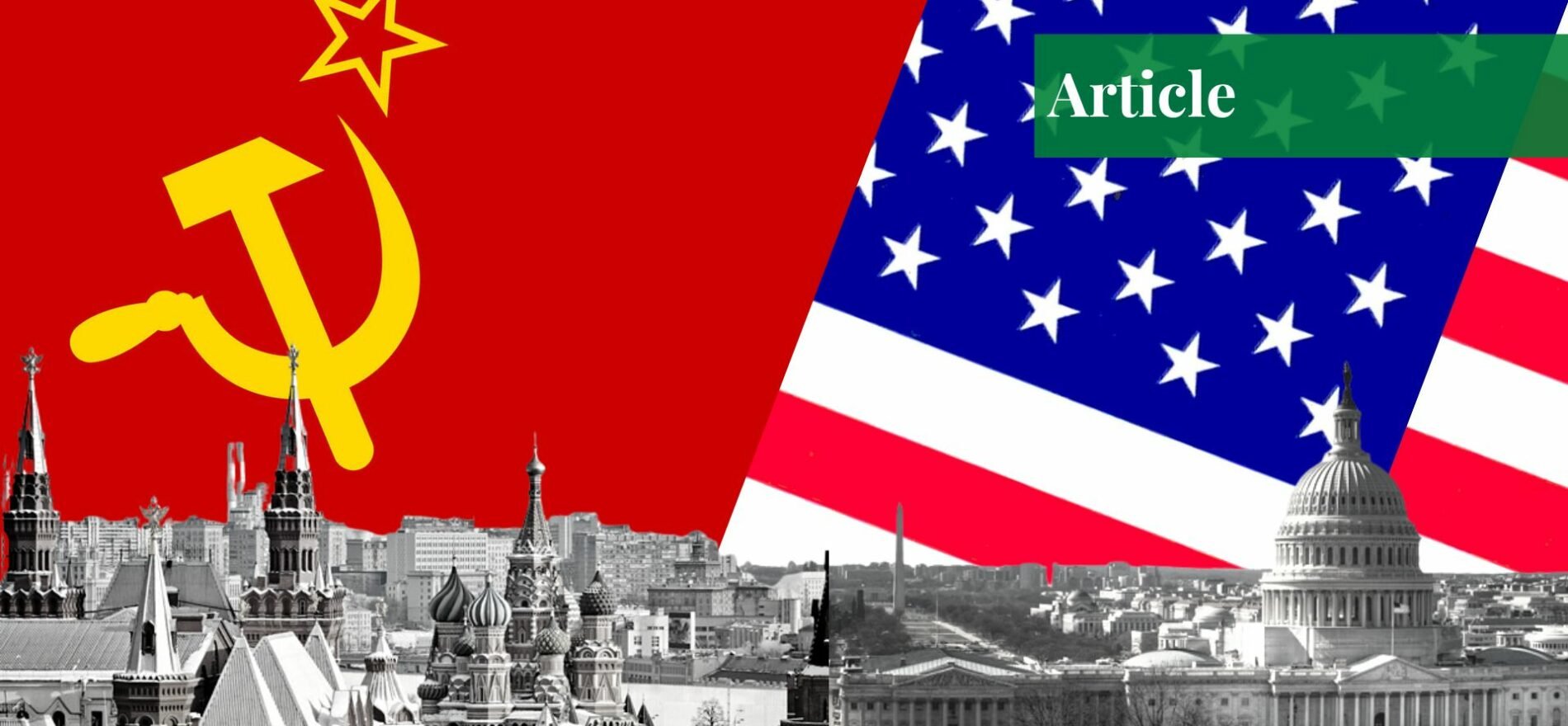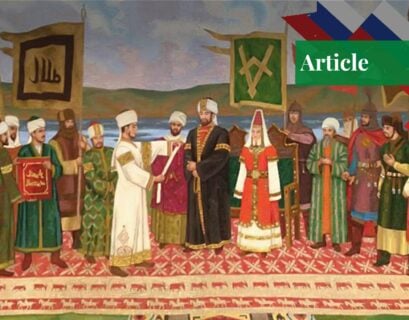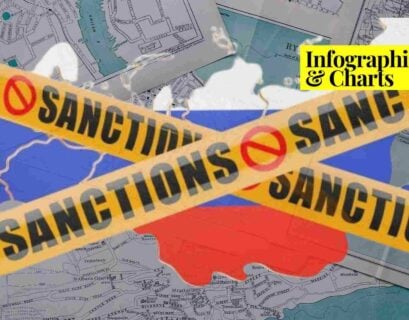Ms Wania Waseem is studying Communication and Media Studies at Fatima Jinnah Women University (FJWU).
Introduction
The events of the Cold War, as vicious as they were, had happened to be the irrefutable harbinger of change, conditioning the course of political history, and garnering much scrutiny as a result of its influence. Countries were either edging closer to pandemonium or basking in the summits of glory—the latter mainly associated with the first world countries, namely, the United States and the Soviet Union (now Russia).
Communism vs Capitalism: Which Will It Be?
If we delve deeper into the roots of the rivalry, we’d discover the dichotomy between the US and the Soviet Union, specifically their political stances and how other countries were drawn into espousing such a stance through either genuine consideration or coercion. The United States was steadfast in its capitalistic agenda, whereas the Soviet Union had dived head-first into a communist regime after the eradication of the Russian monarchy.
The US wanted to dispose of communism from every nook and cranny of the world. The Soviet Union was undaunted, and far from being budged, it further campaigned communism, largely through arms and subjugation. Even China had come under the wing of communism long before the events of the Cold War.
Truman Doctrine

A political turnabout had emerged within the US which shaped world affairs rather profoundly. On March 12th, 1947, Harry Truman, the president of the United States, brought forward the Truman Doctrine, a move that would obstruct and contain communistic sentiments and takeovers. This policy led to the US’s involvement in the Korean War and Vietnam War. Truman justified his clauses in order to impede a potential communist victory in the Greek Civil War.
The Advent of NATO and the Warsaw Pact
Britain, France, the United States, Canada, and other eight western European countries signed the North Atlantic Treaty of April 1949, establishing the North Atlantic Treaty Organization (NATO). An organization formed to fortify collective security to the signed countries, swearing to defend one another.

A political maneuver to oversee and check the imposing threat of the Soviet Union amidst the Cold War. Six years later, a communist alliance took place as a response to NATO; the Warsaw Pact was signed in Warsaw, with the Soviet Union, Albania, Poland, Romania, Hungary, East Germany, Czechoslovakia, and Bulgaria as members. The pact called on the member states to come to the defense of any member attacked by an outside force while setting up a unified military command.
Korean War, Vietnam War & Third-World Escalations
Amidst the Cold War, the Soviet Union occupied North Korea, cementing it as a communist state. On the other hand, the United States occupied South Korea, dividing the country into two portions and announcing the beginning of the Korean War. As it turned out, the split is effectively still intact.
Communist forces in Cuba had ousted the incumbent regime, thus becoming a communist state. South Vietnam was subjected to a communist takeover as well.
Iron Curtain
The term ‘iron curtain’ was incepted which illustrated the Soviet Union’s establishment of a firm division of Europe. Great Britain’s Prime Minister Winston Churchill had addressed his Iron Curtain speech in Missouri, alerting Americans of the division between the Soviet Union and the Western allies, and criticizing the endeavor.
Invasion of Grenada
The United States had invaded Grenada, a Caribbean country comprising a main island, under the guise of securing the safety of the American nationals. Their central objective was to dispose of communism and install a capitalist system.
Gorbachev’s Reforms
A political move instigated by the new General Secretary, Mikhail Gorbachev, was set in motion in order to counter the corruption and transparency within the Communist Party of the Soviet Union. Investigations were carried out, revealing a modicum of instances of power abuse. Gorbachev ameliorated the relationship between the Soviet Union and the western countries by increasing contact.
Fall of Berlin Wall
The wall, erected to separate the communist East Berlin from the democratic West Berlin, stood untouched and impervious for almost 30 years. As the Berlin wall fell on the 9th of November, 1980, it took the communist regime along with it. Thus, marking the collapse of communist states in Czechoslovakia, Hungary, Bulgaria, Poland, Romania, Benin, Mozambique, Nicaragua, and Yemen.
Dissolution of the Soviet Union
Communism began to fade away from Europe while Gorbachev’s reforms exceptionally weakened the Communist Party of the Soviet Union. The dissolution was seen as inevitable, and speculations were soon proven to be true as the Communist Party surrendered its power, ending the ‘Iron Curtain’.
The new President-elect Boris Yeltsin issues a ban on the Communist Party. Communism soon ended in Afghanistan, Albania, Angola, Congo, Kenya, Yugoslavia, and other nations. China, Cuba, Laos, and Vietnam, however, remained under communist rule.
North Korea continues to perpetuate communism, but the government doesn’t overtly refer to the country as a communist. On 26th December, 1991, the Soviet Union effectively dissolved, closing the final chapter of the Cold War.
Anything but a Conclusion
The war was indeed over. The United States had thoroughly driven out Russian forces from Afghanistan, offsetting the invasion. Noor Taraki, who had ties with the Soviet Union, was overthrown from power and executed by Amin. This couldn’t have been achievable without the insurgencies of the Afghan Mujahideen who were backed by America, the UK, Saudi Arabia, and Pakistan. They were given ammunition and financial support to oust the communist regime, replacing it with an Islamic revolution.
Pakistan was a neighboring country that readily provided its airspace and navy to the cause of the Afghan Mujahideen, even going as far as shooting Soviet Union aircraft and storing ammunition for Afghanistan. The Soviet Union forces withdrew from Afghanistan which manifests that the US had defeated Russia, putting an end to the war.
While the events of the Cold War may have ended with Russia on its knees, the aggression of that time still exists. Under the command of Vladimir Putin, Russia invaded Ukraine on this day a year ago, to settle old feuds. The Cold War indeed concluded for America, the West, and the third-world countries, but for Russia, it never did.
If you want to submit your articles and/or research papers, please check the Submissions page.
The views and opinions expressed in this article/paper are the author’s own and do not necessarily reflect the editorial position of Paradigm Shift.



















